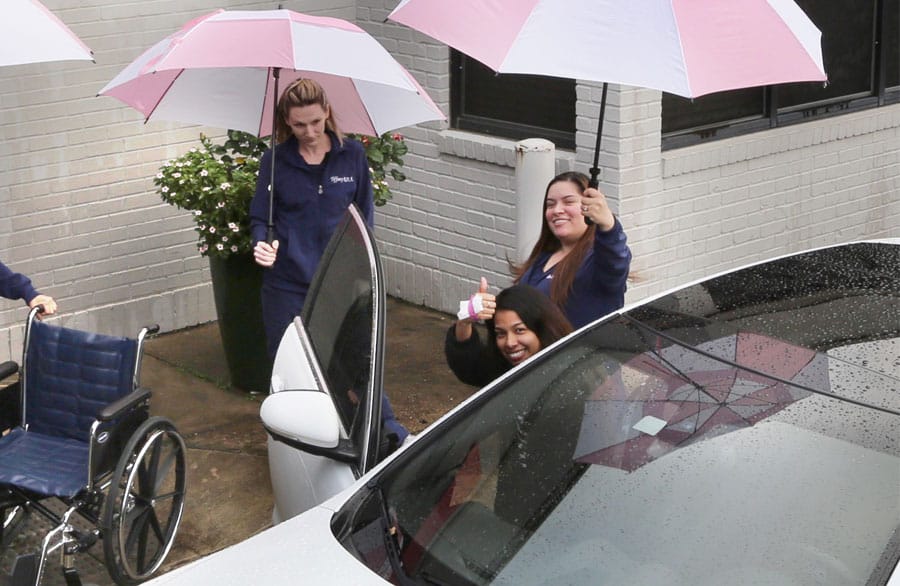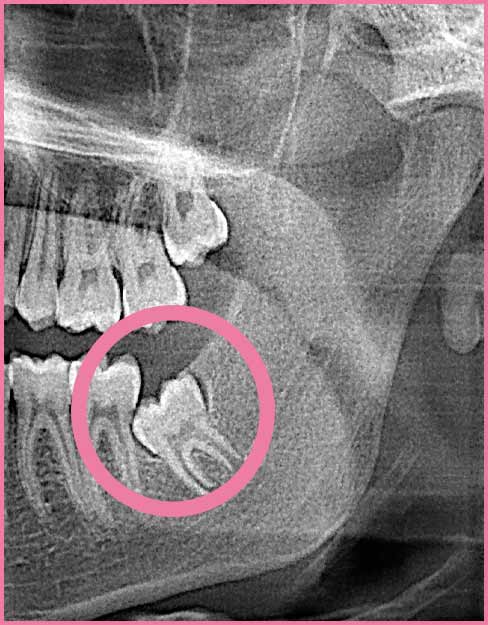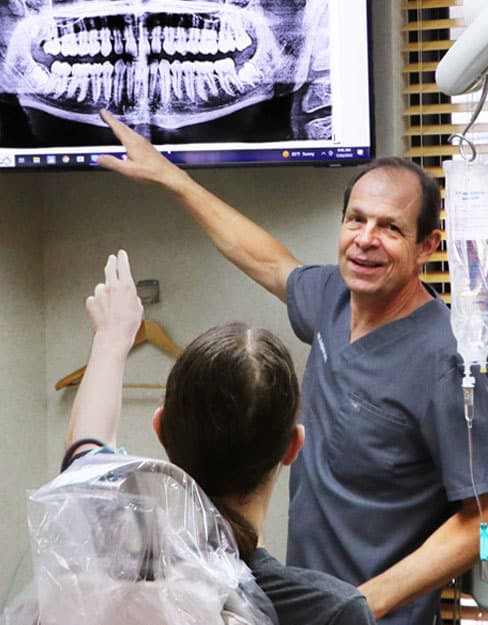Hassle-Free Tooth Extractions
Dr. Roman Kotlarek has focused his career on preventing tooth loss. However, gum disease, tooth decay and tooth fractures can require that teeth be removed. When a tooth saving solution is available, the benefits and potential complications of those options will be discussed so that patients are able to make the best decision for their own dental care. If you need to have a tooth removed, you will benefit from Dr. Kotlarek's experience, modern equipment and a gentle touch. He provides the personalized care everyone deserves. Additionally, he has your comfort as his top priority.


Reasons Why Tooth Extractions Are Necessary
Dental extractions are recommended when a tooth cannot be restored. When a tooth can be saved, Dr. Kotlarek discusses treatment options and offers solutions. However, tooth removal is necessary in many circumstances, for example:
- Wisdom teeth: Many people need to have third molars surgery due to partial or full impaction. Simply, in most cases there’s not enough room in the mouth to accommodate a third set of molars. Impacted wisdom teeth are best removed between the ages of fourteen to nineteen. When necessary, extraction will prevent adjacent tooth decay, periodontal disease, cavities and crowding .
- Severely decayed and broken teeth: Sometimes a tooth can be too badly damaged by decay, infection, or trauma. If a tooth can not be predictably restored, often it’s best to have it removed and replaced.
- Orthodontics: severe cases of overcrowding can be resolved by removing specific teeth to create more room in the mouth.
- Dentures: If your teeth are badly damaged or you only have a couple remaining, extracting them can be the first step to completing your smile with dentures.
The Process of Removing a Tooth
Depending on your situation, Dr. Roman will recommend either:
- Simple Extraction: Local anesthetics and possibly a method of sedation is used to provide a relaxed and comfortable oral surgery experience.
- Surgical Extraction: When a tooth is broken, has a curved root or is embedded under the gum tissue it will need to be surgically extracted. Surgical extractions may require that a method of sedation be used in conjunction with local anesthetics. When I V sedation is chosen, discomfort will be resolved and patients have little or no memory of the dental procedure. Sutures may be placed to prevent complications and provide comfortable healing.


Tooth Extraction Aftercare
Generally, simple extractions are easier to recover from because they aren’t as invasive. No matter the method used, you can ensure a quick recovery by following a few aftercare tips:
- Take It Easy: You will need to spend at least the next 24 hours resting to allow the effects of any sedatives or numbing agents to dissipate. You will also need to avoid strenuous activities for at least one week.
- Eat and Drink Carefully: Temperature check any foods or drinks until after any numbing medications wear off. Avoid anything carbonated, acidic, or spicy. It’s best to stick to soft foods for a couple of days.
- Manage Pain and Swelling: Take a prescribed or over-the-counter pain reliever to manage any discomfort. Applying a cold compress will also provide relief while reducing swelling and bruising.
- Protect the Blood Clot: If the blood clot in the extraction site is lost too soon, it can lead to a dry socket, which is very painful. You can reduce your risk by not using a straw when drinking because suction can dislodge it. Do not rinse your mouth vigorously and avoid touching the surgical site.
- Keep Your Mouth Clean: Follow Dr. Roman’s oral hygiene instructions. You can also rinse your mouth with salt water to kill bacteria and reduce inflammation, but only lightly swish it around and let it flow out into the sink.
- Avoid Tobacco and Alcohol: Smoking and alcohol can affect your body’s ability to heal and fight infections, which can complicate your recovery.
If you need a consultation for tooth extraction, request an appointment online or call (281) 920-4200.








